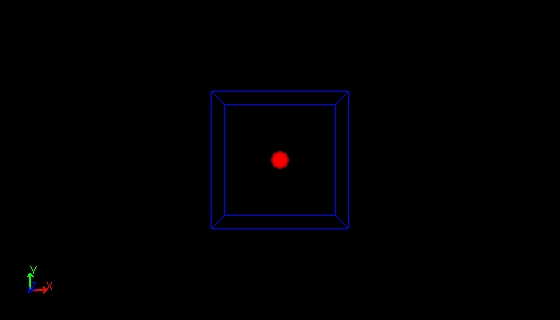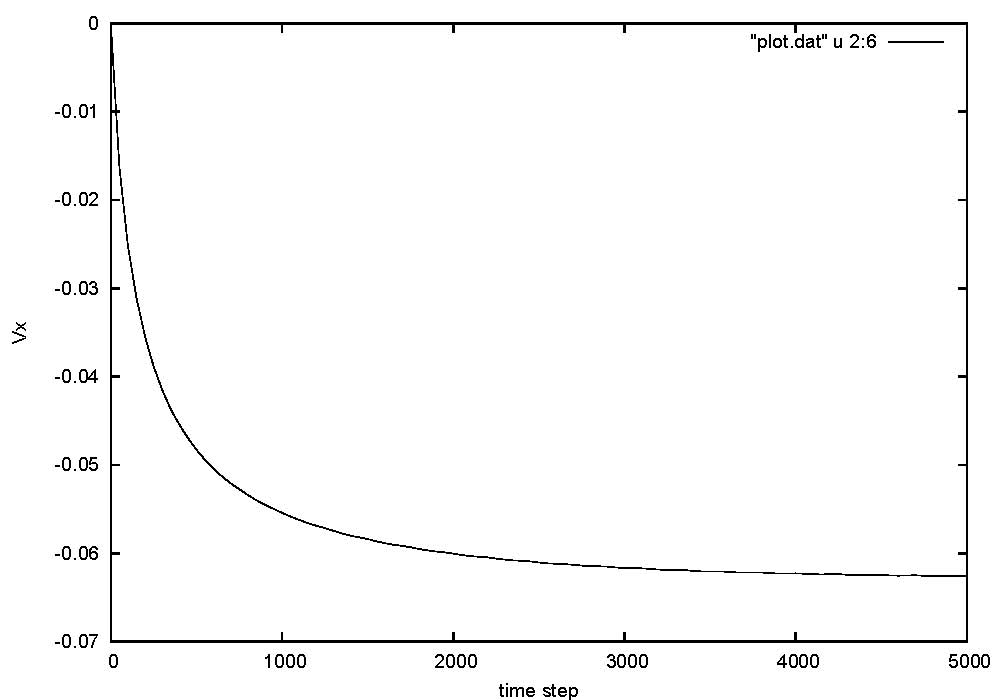Installation of KAPSEL binary †
STEP 1: Download "KAPSEL" binary †
Visit KAPSEL-BBS and Login. Registration is required if you haven't yet completed it. Follow "DOWNLOAD" -> "KAPSEL-2" -> "KAPSEL-2 binary executables" to download appropriate binary package for your system.
"kapsel2_linux.zip" (Linux on x86-64 machine)
"kapsel2_win.zip" (32-bit Windows Vista or XP) recommended! STEP 2: Run KAPSEL †
KAPSEL is a command line program which can be started as the following example. Start test run using a sample input UDF "colloid_1.udf", with which one can simulate electrophoresis of a single charged particle in electrolyte solution. > unzip kapsel2_linux.zip
> ./kapsel -Icolloid_1.udf -Ooutput.udf -Ddefine.udf -Rrestart.udf
for Windows
unzip "kapsel2_win.zip"
open command prompt > kapsel -Icolloid_1.udf -Ooutput.udf -Ddefine.udf -Rrestart.udf
If you see the output as shown below, KAPSEL has been successfully installed. #using colloid_1.udf as input
#using output.udf as output
#using define.udf as definition
#using restart.udf as restart
#
# Electrolyte eq. selected.
#
...
If the program does not properly run or abnormally terminated, build KAPSEL from the source codes. (see this ) STEP 3: Download and install GOURMET †
GOURMET is a graphic platform developed by OCTA project. The complete OCTA package is not necessary, but GOURMET is needed to use KAPSEL. Visit OCTA-BBS and Login. Registration is required if you haven't yet completed it. For Linux
Follow "DOWNLOAD" -> "OCTA2007" -> "GOURMET 4.1.0 (on OCTA2007) for Windows and Linux".
download "gourmet_2007_linux.tar.gz" > tar zxvf gourmet_2007_linux.tar.gz
> su
> mkdir /usr/local/OCTA2007
> mv GOURMET_2007 /usr/local/OCTA2007/.
> setenv PF_FILES /usr/local/OCTA2007/GOURMET_2007
> sh /usr/local/OCTA2007/GOURMET_2007/bin/gourmet.sh
For Windows
Follow "DOWNLOAD" -> "OCTA2007" -> "Platform GOURMET2007 in OCTA2007 (for Windows)".
download "GOURMET2007.exe" and click it.
"Start Menu" > "All Programs" > "OCTA2007" > "StartGourmet" See manuals for more detailed information on GOURMET
STEP 4: Visualize the result †
The above test run takes about an hour. Save Animation on GOURMET
Save
Start GOURMET
"File" -> "Open" -> Open "output.udf".
Move down to "Python" panel, and click "Load"
Open "particleshow.py" (particle only) or "show_field.py" (particle with flow field, very slow!!).
Click "Run"
A new window will open, and click the playback button ">" there.
Gnuplot on GOURMET
Save
Start GOURMET
"File" -> "Open" -> Open "output.udf".
Move down to "Python" panel, and click "Load"
Open "plot.py", and click "Run"
Move up "View" box, and check "Table"
Move down-left and select "Graph Sheet[]".
Move down to "Plot" panel, and type "plot "plot.dat" using 2:6 title 'vx0' with lines" in the command box.
Click "Plot", and you will see the time evoluation of Vx.
Animation on AVS/Express (optional)
One can enjoy much advanced data-visualization with AVS/Express. A sample visualization network  output.udf if you cannot wait until it terminates.
output.udf if you cannot wait until it terminates. particleshow.py and
particleshow.py and  show_field.py.
show_field.py. plot.py.
plot.py. avs_charge.v is attached.
avs_charge.v is attached.

